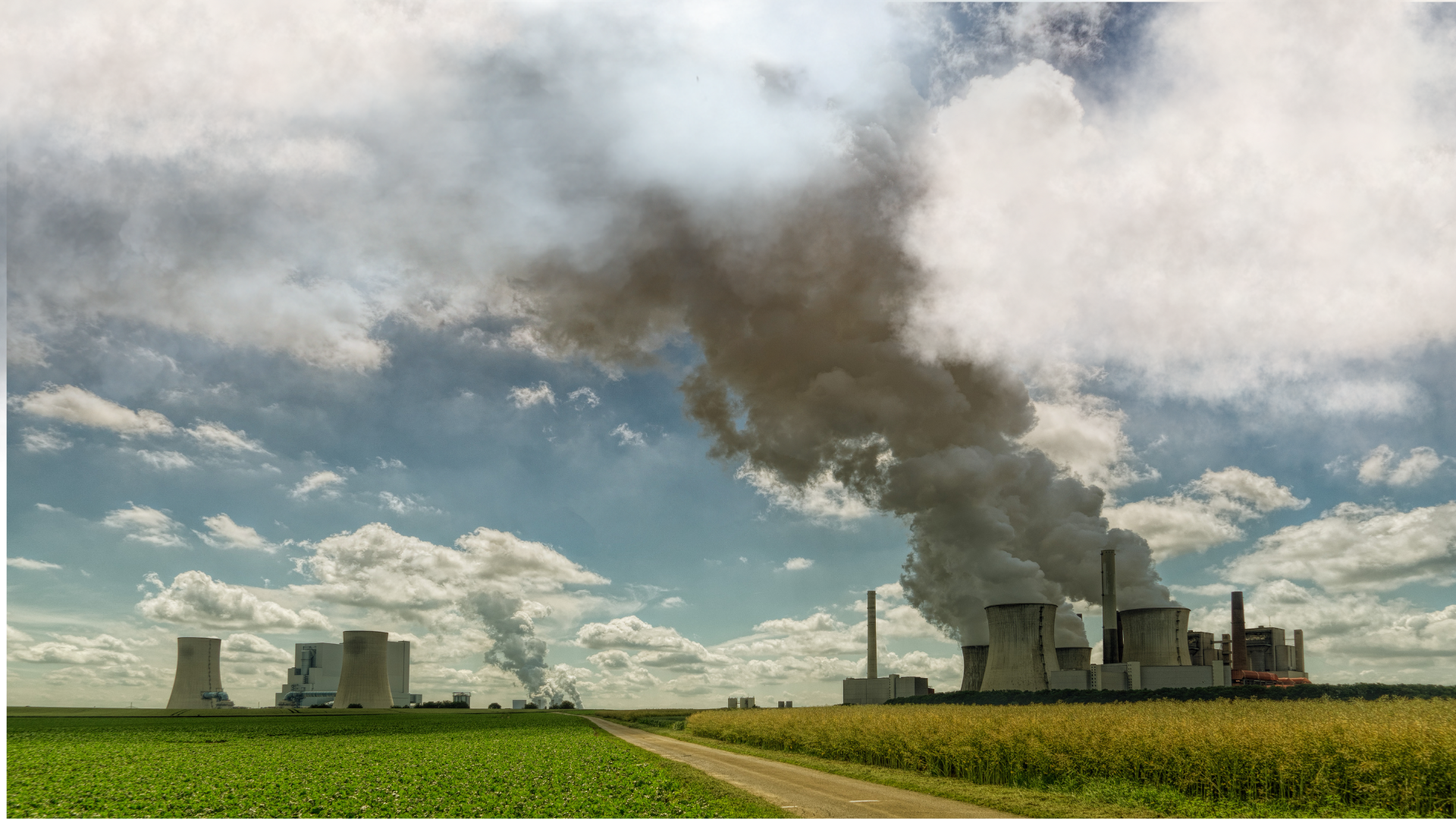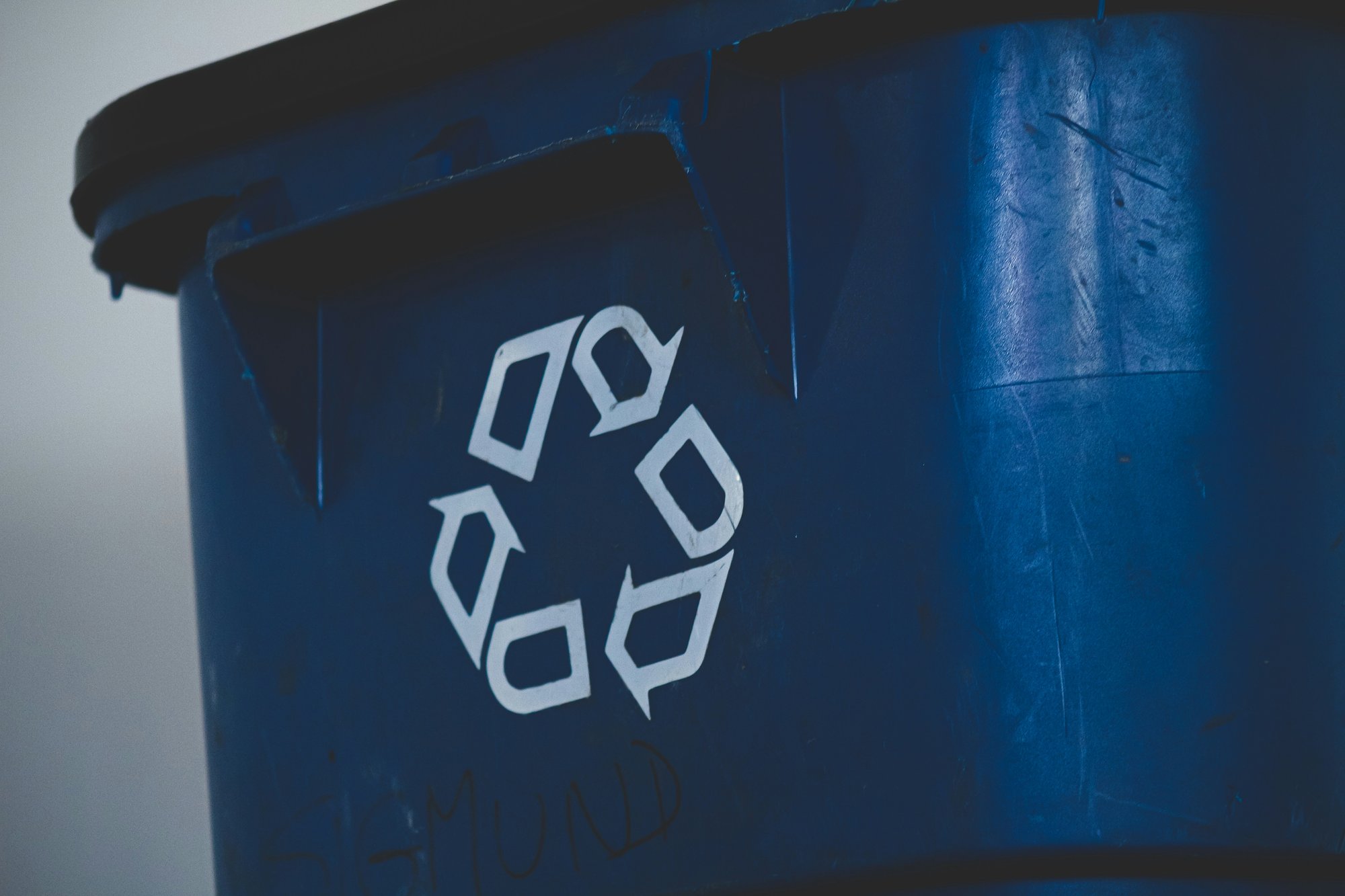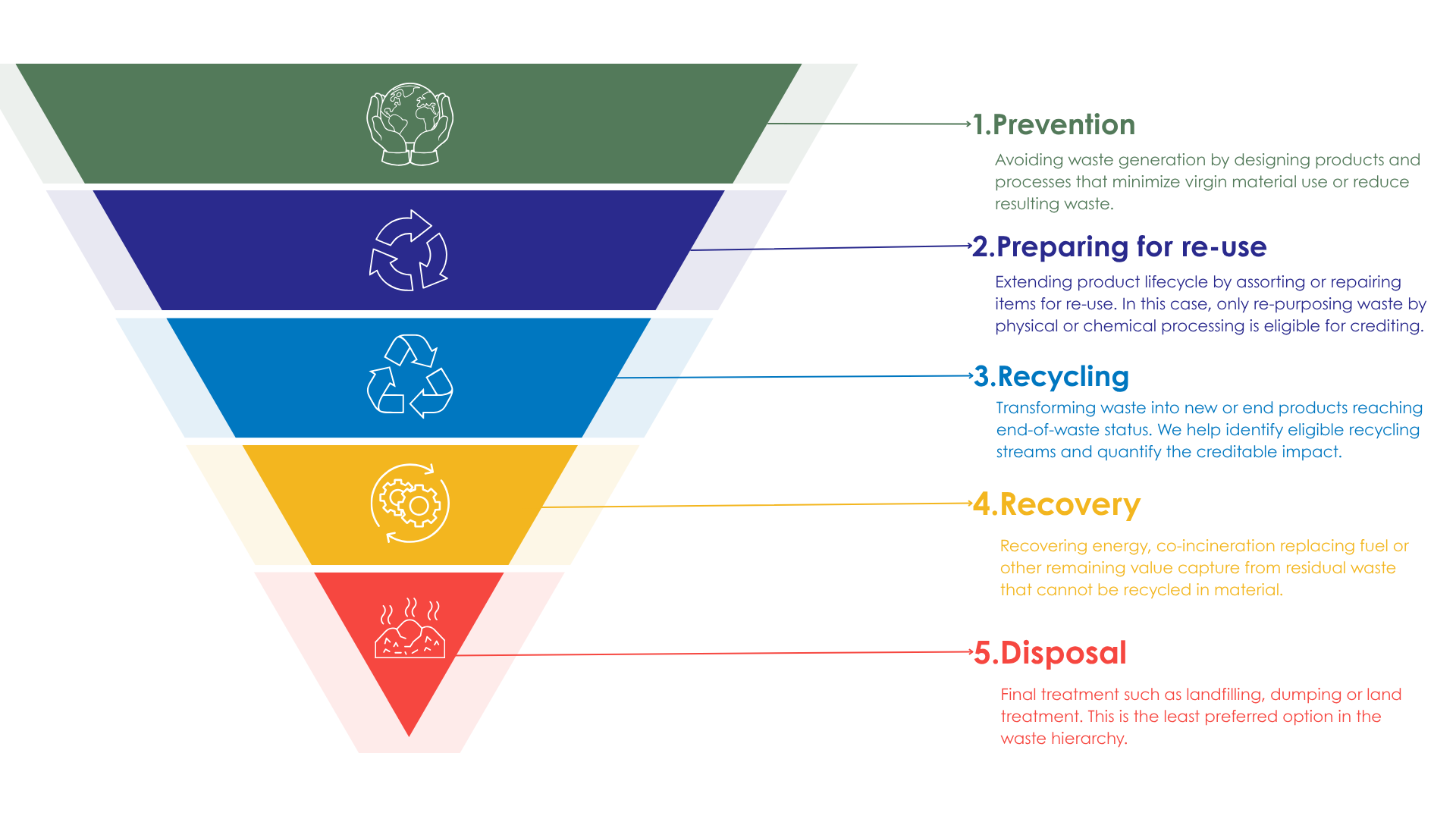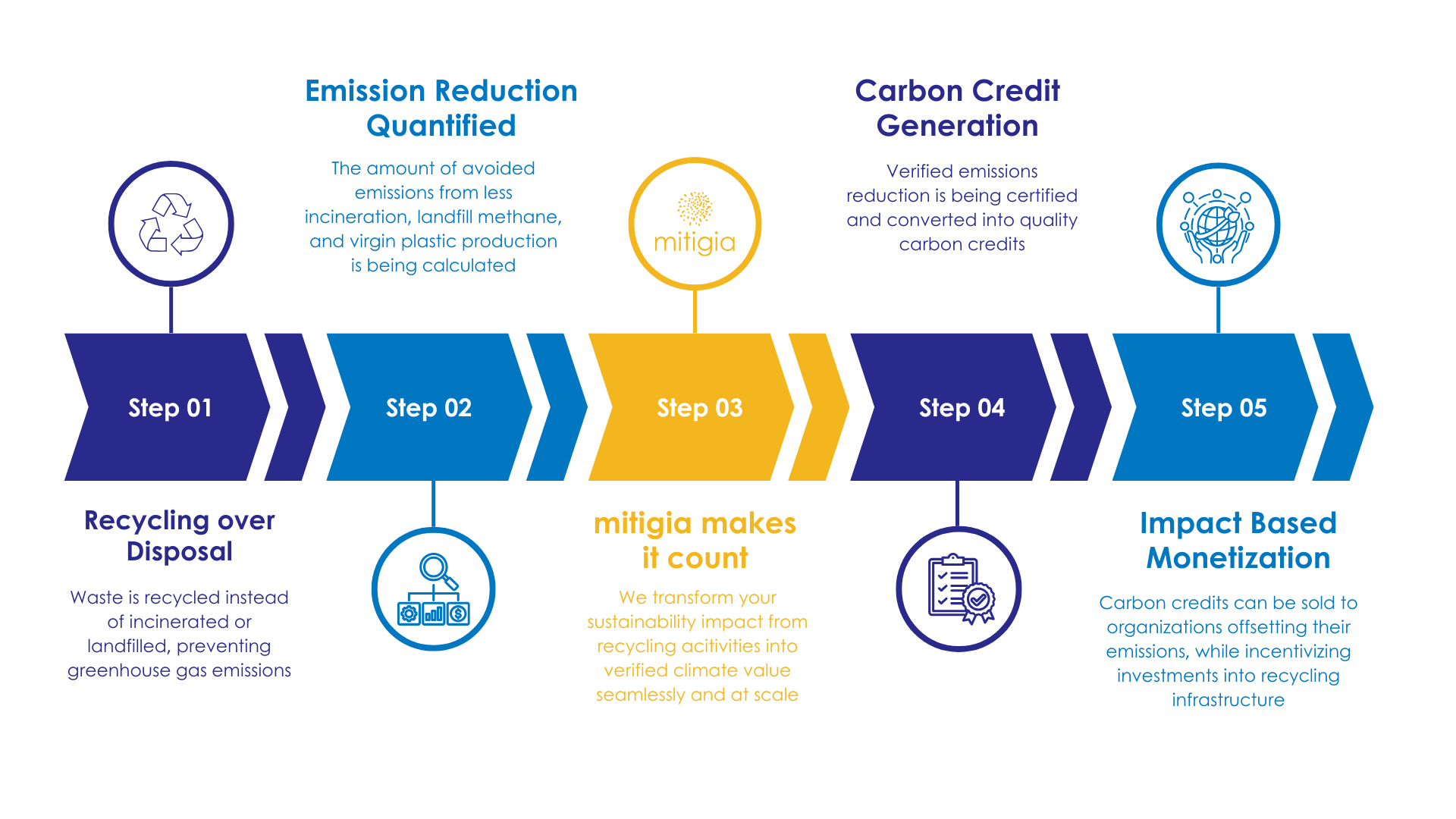Generate carbon credits based on
material recycling
Issuing carbon credits with green EV charging networks

Our second methodology, that refers to carbon credit issuance by green electricity powered EV charge points, has been verified by the independent sustainability project auditor, Green Cross Hungary, just like our fleet electrification monetization know-how.
These certifications prove that our know-hows are designed in a way to be line with the BSI standards and the GHG protocol, following the recommendations set in the Core Carbon Principles by the Integrity Council for the Voluntary Carbon Market, and complying with the Monitoring, Reporting and Verification requirements, thus enables our Partners to generate high-integrity carbon credits.
Humanity’s growing waste problem is fueling climate change
Every year, the world produces over 2 billion tonnes of municipal solid waste according to a recent study of the World Bank, and this number is projected to grow rapidly with urbanization and population increasing further. A significant portion of this waste ends up in landfills or incinerators, releasing millions of tonnes of CO₂ and other greenhouse gases into the atmosphere.
When organic waste decomposes in landfills, it emits methane — a greenhouse gas 28 times more potent than CO₂ over a 100-year period. Incineration, though often used as a solution, emits large volumes of CO₂ without addressing the root issue: we are generating too much waste and not doing enough to repurpose it.
Recycling solid waste in its material is one of the most effective ways to break the cycle according to one of the key statements of circular economy, thus it’s also a powerful tool for generating quality carbon credits from improved waste management activities.

Plastic waste is one of the most persistent threats to our planet

Plastics make up a substantial share of global waste, with over 300 million tonnes produced annually in the world according to the United Nations Environment Programme (UNEP) — and more than half of that is discarded after a single use. These materials do not biodegrade, and when burned, they release massive quantities of greenhouse gases and other toxic chemicals. The environmental cost is staggering: plastic waste clogs ecosystems, pollutes oceans, and contributes heavily to climate change. However, plastics also represent an untapped opportunity — when properly collected and recycled in material, they can be transformed from pollutants into valuable raw materials, while reducing emissions and diverting plastics from incinerators and landfills.
Advanced recycling systems offer scalable climate solutions
Instead of burning plastic or sending it to landfills, dedicated waste processing units have been established to collect, sort, and recycle plastic waste into reusable materials. These systems are designed to preserve the material value of plastics, reducing the need for virgin plastic production that is a major source of CO₂ emissions. Through processes like mechanical recycling (grinding and remelting plastics) and chemical recycling (breaking down polymers into monomers), waste is transformed into new products, reducing environmental impact and supporting the circular economy. If these operations are considered as voluntary climate action, it not only helps tackle pollution, but also directly contributes to emissions reduction, making them eligible for carbon crediting.

We help recycling in material activities with transparent carbon crediting

According to the EU legislation around circular economy, within the waste management hierarchy mitigia focuses solely on the recycling in material activities, the point where waste materials are transformed back into end products reaching end-of-waste status. Not every recycling in material activity automatically qualifies for carbon crediting, which is why mitigia always conducts a comprehensive feasibility study to assess each material stream in detail.
Through this process, we determine whether the underlying recycling operation meets the criteria for carbon crediting, especially when it comes to economic or legal waste accounting. The general rule is that carbon crediting becomes possible once ownership of the waste is transferred to the recycler. In such cases, economic waste can be fully accounted for, while legal waste can be credited to the extent the underlying recycling activity goes voluntarily beyond the regulatory requirements. Waste under Extended Producer Responsibility (EPR) is, by default, not eligible for carbon crediting by the recycler, unless the waste producer or in some countries the EPR concessor, who holds the ownership over the waste under EPR, explicitly transfers the carbon accounting rights to the recycler. In short, mitigia helps recycling companies unleash the carbon crediting potential of the carbon emissions reductions resulting from their activities by ensuring compliance, ownership clarity, and full transparency across the circular value chain.
Looking to turn your recycling project into verified climate action?
Book a commitment-free call with our experts!
Recycling projects can generate verified carbon credits

When plastic waste is recycled in material instead of incinerated or landfilled, a measurable amount of greenhouse gas emissions is avoided. This reduction can be calculated, verified, and issued as carbon credits. By quantifying the emissions savings from activities such as diverting waste from incineration, reducing the need for virgin plastic production, and cutting methane emissions from landfills, waste management projects can become revenue-generating voluntary climate action going beyond regulatory requirements. The resulting quality carbon credits then can be sold to companies and institutions seeking to offset their emissions, creating a financial incentive to scale up recycling infrastructure while driving measurable environmental impact.
Which Recycling Operations Qualify for Carbon Credits?
Plastic waste recycling
Collecting, sorting, and processing post-consumer or industrial plastic waste to recover materials for reuse, rather than landfilling or incineration. By avoiding virgin plastic production and preventing CO₂ emissions from waste burning, these projects can generate measurable emission reductions.
Tyre/metal recycling
Reprocessing used tyres and scrap metals into secondary raw materials for industrial use. These activities reduce the need for energy-intensive virgin material production and minimize emissions associated with improper disposal, such as open burning or uncontrolled dumping.
Agro waste management
Capturing and repurposing agricultural residues—such as crop stalks, husks, or manure—that would otherwise decompose or be burned in open fields. Techniques like composting, biochar production, or anaerobic digestion help avoid methane emissions and contribute to soil health, making them eligible for carbon credits.
Looking to turn emissions reductions into credits?
Email our team — no commitment, just clarity.
Mitigia’s carbon credit generation know-how on recycling activities
POST-FINANCING OF WASTE RECYCLING INVESTMENTS THROUGH THE ISSUANCE OF CARBON CREDITS
Our carbon credit generation know-how designed for waste recycling projects is certified to be in line with the recent ISO standard of Circular Economy, the BSI standards and the GHG protocol, following the recommendations set in the Core Carbon Principles by the Integrity Council for the Voluntary Carbon Market.
Above this it complies with the Monitoring, Reporting and Verification requirements, thus enables our Partners to generate high-integrity carbon credits.
Date of voluntary registration: 13th August 2025 | No. of voluntary registration: 014224 | No. of carbon market verification: GCH-MIT-100915
